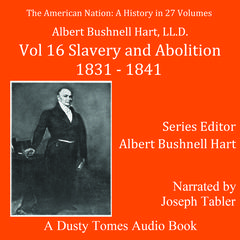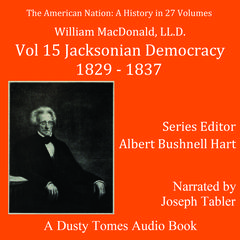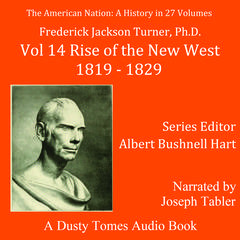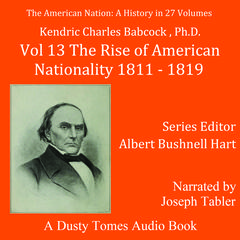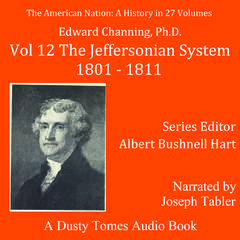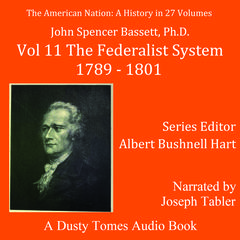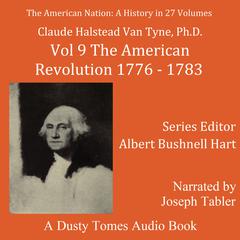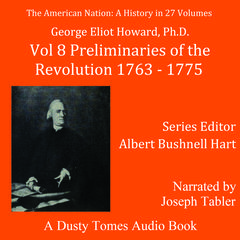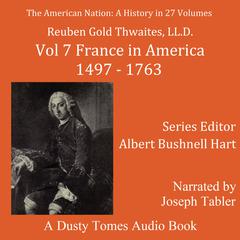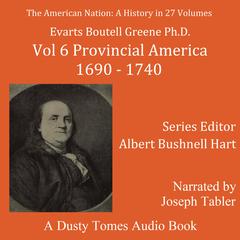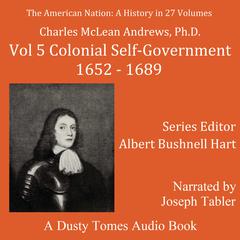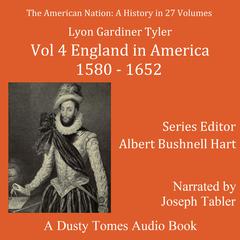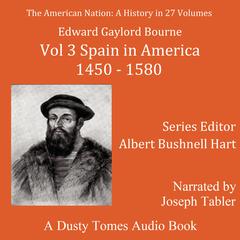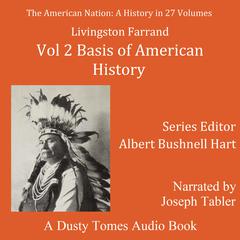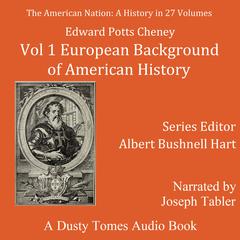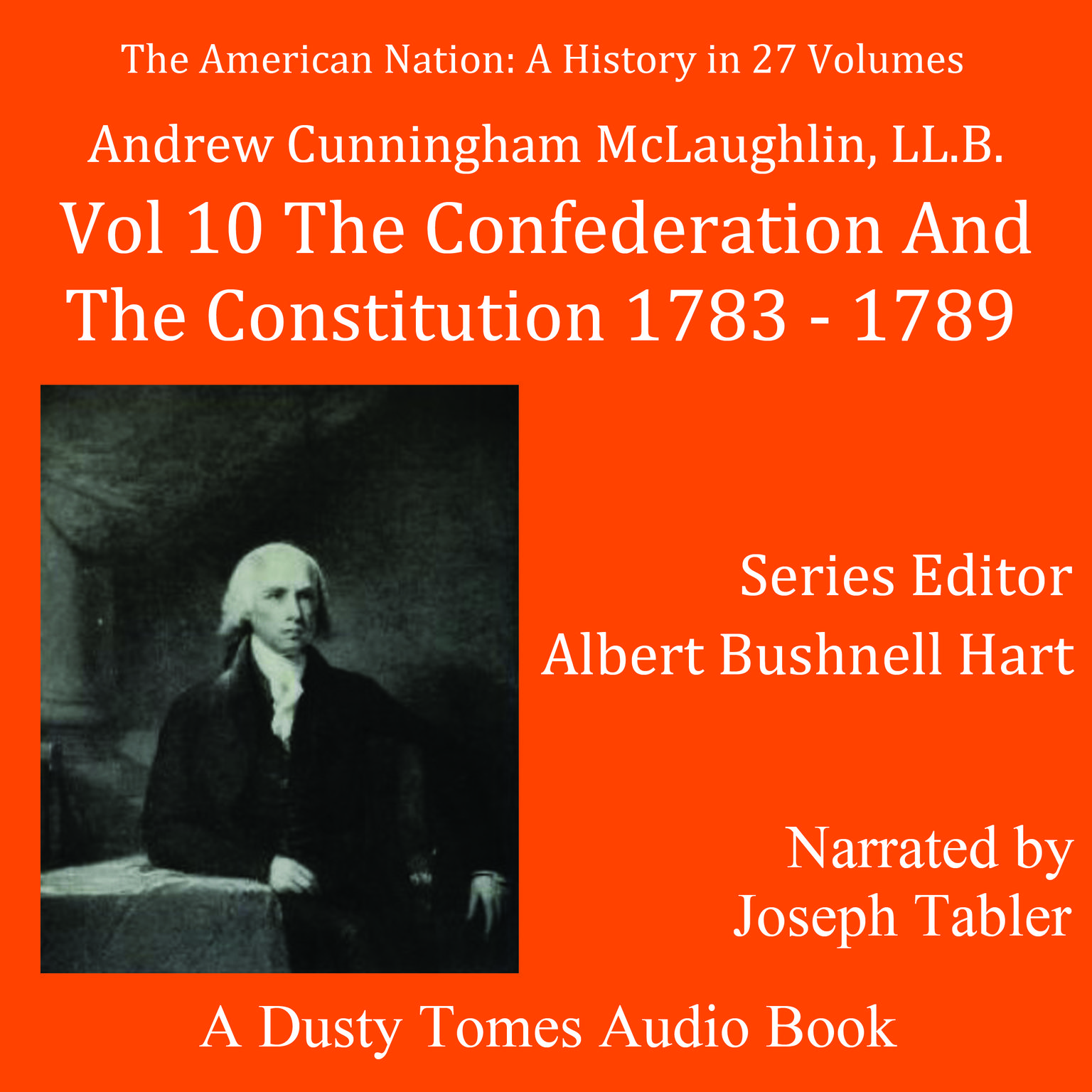 Play Audiobook Sample
Play Audiobook Sample
The American Nation: A History, Vol. 10: The Confederation and the Constitution, 1783–1789 Audiobook
 Play Audiobook Sample
Play Audiobook Sample
Quick Stats About this Audiobook
Total Audiobook Chapters:
Longest Chapter Length:
Shortest Chapter Length:
Average Chapter Length:
Audiobooks by this Author:
Publisher Description
A Dusty Tomes Audio Book
In Cooperation with Spoken Realms
The Confederation and the Constitution, 1783–1789 by Andrew Cunningham McLaughlin, LLB, Professor of American History at the University of Michigan. 1936 winner of the Pulitzer Prize for History for his book A Constitutional History of the United States.
Narrated by Joseph Tabler
Volume 10 of 27 in The American Nation: A History published by Harper Brothers (1904–1918) Edited by Albert Bushnell Hart, Professor of History at Harvard University
From the Editor’s Introduction to the Series: That a new history of the United States is needed, extending from the discovery down to the present time hardly needs statement. No such comprehensive work by a competent writer is now in existence. Individual writers have treated only limited chronological fields. Meantime there, is a rapid increase of published sources and of serviceable monographs based on material hitherto unused. On the one side, there is a necessity for an intelligent summarizing of the present knowledge of American history by trained specialists; on the other hand, there is a need of a complete work, written in untechnical style, which shall serve for the instruction and the entertainment of the general reader.
From the Editor’s Introduction to Volume Ten: To the years from 1783 to 1789, Fiske has given the name “The Critical Period of American History"; yet it seems doubtful whether it was really a time of such danger of national dissolution as people then and since have supposed. Certainly, the trend of this volume is to show a more orderly, logical, and inevitable march of events than has commonly been described.
The special service of this volume is to bring out the relation of earlier experiences and forms of government to the final work of the convention. The Confederation is a preparatory stage, which, in the author’s judgment, was more creditable to the men of that time than posterity has been willing to allow. It had viability in itself, and from its mistakes, the framers of the Constitution learned wisdom. Throughout the book attention is paid to the capacity and accomplishment of the American people, and to their working out of tried and familiar principles into a new and more effective combination.
From the Author’s Preface: No history of the American nation would be satisfactory which left in dim obscurity the tale of how the people in the years after the war—when beset with difficulties and troubled by a political order which was unsuited to their needs—proceeded “deliberately and peaceably, without fraud or surprise” to establish a national union and to adjust political powers in a complicated and elaborate system of government.
… I have taken seriously the wish of the editor that the volumes should be based on original materials. Though I have been helped by many secondary writers, almost nothing is taken from them without verification in the sources; and in many cases the secondary writers are referred to because they contain the original material desired.
Editor’s Introduction
Author’s Preface
I. The End of the Revolution (1781–1782)
II. The Treaty of Paris (1782–1784)
III. The Problem of Imperial Organization (1775–1787)
IV. Poverty and Peril (1781–1783)
V. Commercial and Financial Conditions (1783–1786)
VI. Diplomatic Relations (1783–1788)
VII. Founding a Colonial System (1783–1787)
VIII. Founding of New Commonwealths (1787–1788)
IX. Paper Money (1781–1788)
X. Shays’s Rebellion (1786–1787)
XI. Proposals to Alter the Articles of Confederation (1781–1786)
XII. Plan for a National Government (1787)
XIII. Shall the Confederation Be Patched Up? (1787)
XIV. The Great Compromise (1787)
XV. The Law of the Land (1787)
XVI. Further Compromises and the Conclusion of the Convention’s Work (1787)
XVII. The Constitution before the People (1787–1788)
XVIII. For Better or for Worse (1788)
Audio cover picture: James Monroe
Dusty Tomes Audio Books are public domain books retrieved from the ravages of time. Available for the first time in this format for your pleasure and consideration.
Download and start listening now!
“A landmark in the writing of US history by professional historians that would remain the standard in the field for decades thereafter.”
— American Historical Association, praise for the series
The American Nation: A History, Vol. 10 Listener Reviews
Be the first to write a review about this audiobook!
About the Authors
Andrew Cunningham McLaughlin (1861–1947) was a respected historian and an authority on US Constitutional history. He was selected to be the first director of the Department of Historical Research at the newly created Carnegie Institution in Washington, DC, and in 1914 he was named president of the American Historical Association. McLaughlin’s magnum opus, A Constitutional History of the United States (1935), won the 1936 Pulitzer Prize for History.
Albert Bushnell Hart (1854–1943) was one of the first generation of professionally trained historians in the United States and a prolific author and editor of historical works. Hart became, as Samuel Eliot Morison described him, “The Grand Old Man” of American history, looking the part with his “patriarchal full beard and flowing moustaches.”
About Joseph Tabler
Joseph Tabler is an American author, publisher, used book dealer, lifeguard, expert bodysurfer, pianist, and composer. Presently he narrates “old books that probably would never get turned into audio books.” Dusty Tomes Audio Books are public domain books retrieved from the ravages of time.




